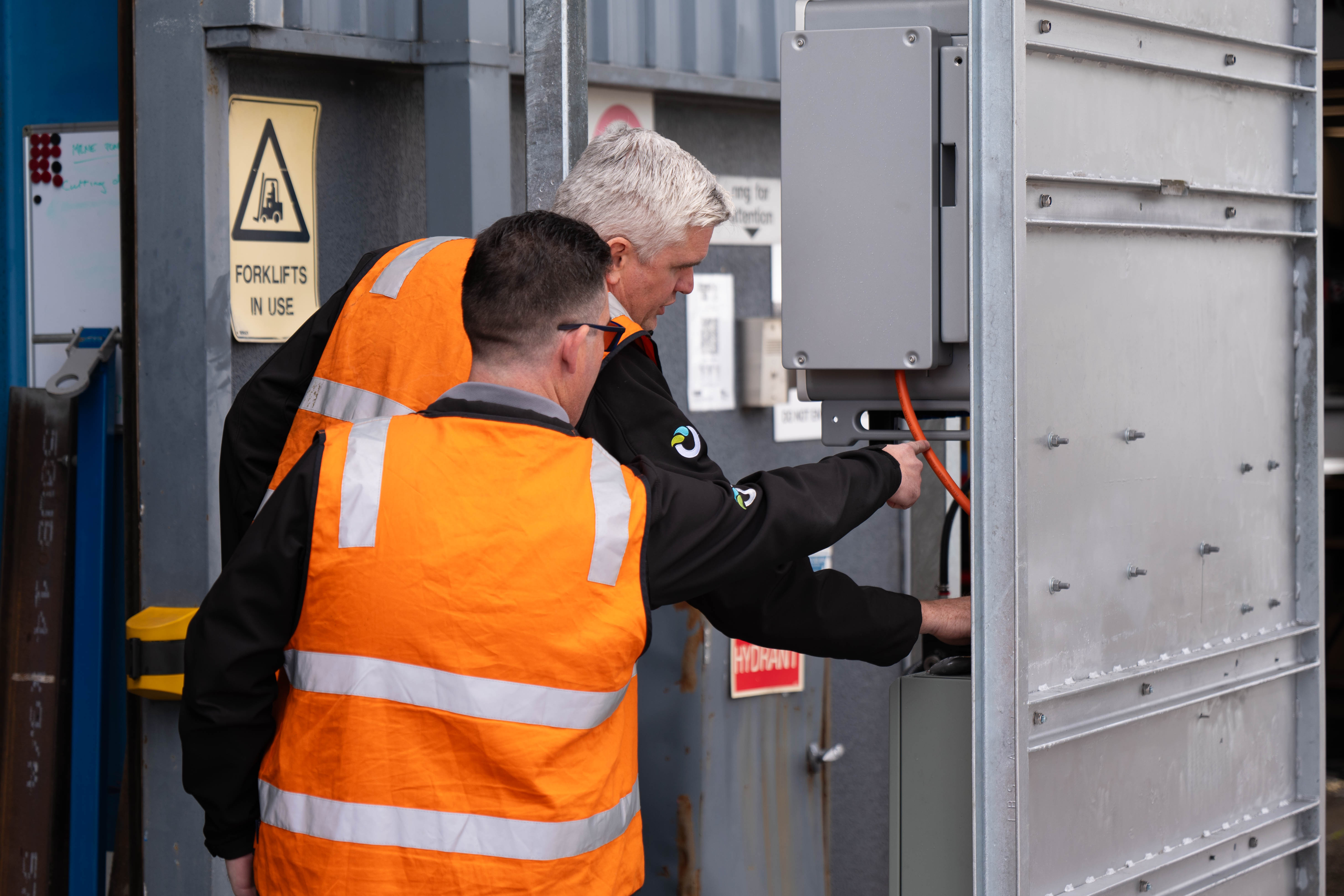We at Optimal Group are proud to announce that we are partnering with Panasonic Australia to trial their new hydrogen fuel cell in the Australian market to provide clean and low-emission power generation options for businesses.
In 2009, Panasonic introduced the world's first household fuel cell cogeneration system, ENE-FARM*3, which harnessed hydrogen extracted from natural gas for power generation to produce power and hot water where it’s needed. Over the span of a decade, Panasonic has meticulously advanced the ENE-FARM system, enhancing its electrical efficiency, operational uptime, and compactness. During this period, more than 250,000 units of this technology have been successfully sold, underscoring the burgeoning demand for hydrogen as a viable power generation alternative.
 Optimal is partnering with Panasonic to trial their new hydrogen fuel cell in Australia.
Optimal is partnering with Panasonic to trial their new hydrogen fuel cell in Australia.
Concurrently, in anticipation of the imminent hydrogen-powered society, Panasonic has been engaged in parallel research and development activities focused on pure hydrogen fuel cell generators. These generators operate by directly utilising externally supplied hydrogen as their primary fuel source to generate power.
The innovative features stemming from the ENE-FARM's developmental journey have been thoughtfully integrated into this pure hydrogen fuel cell generator. Notably, the incorporation of a common stack unit, a pivotal component within fuel cell technology also employed in the ENE-FARM, ensures consistent power generation performance and attains an unparalleled industry-leading electrical efficiency rating of 56% with over 90% package efficiency when used in cogeneration mode, along with Panasonic’s reputation for quality, low maintenance and reliability. Optimal is trialling the new 5 kW unit here in Australia for commercial applications in preparation for the new 10 kW module which will be globally available mid to late 2024. The systems are designed to be modular and scalable, as demonstrated recently with the installation of 500 kW of these units at Panasonic’s manufacturing facility in Kusatsu, Japan.
Additionally, its lightweight and compact housing facilitates versatile adaptability to various installation scenarios, including rooftops and confined spaces.
